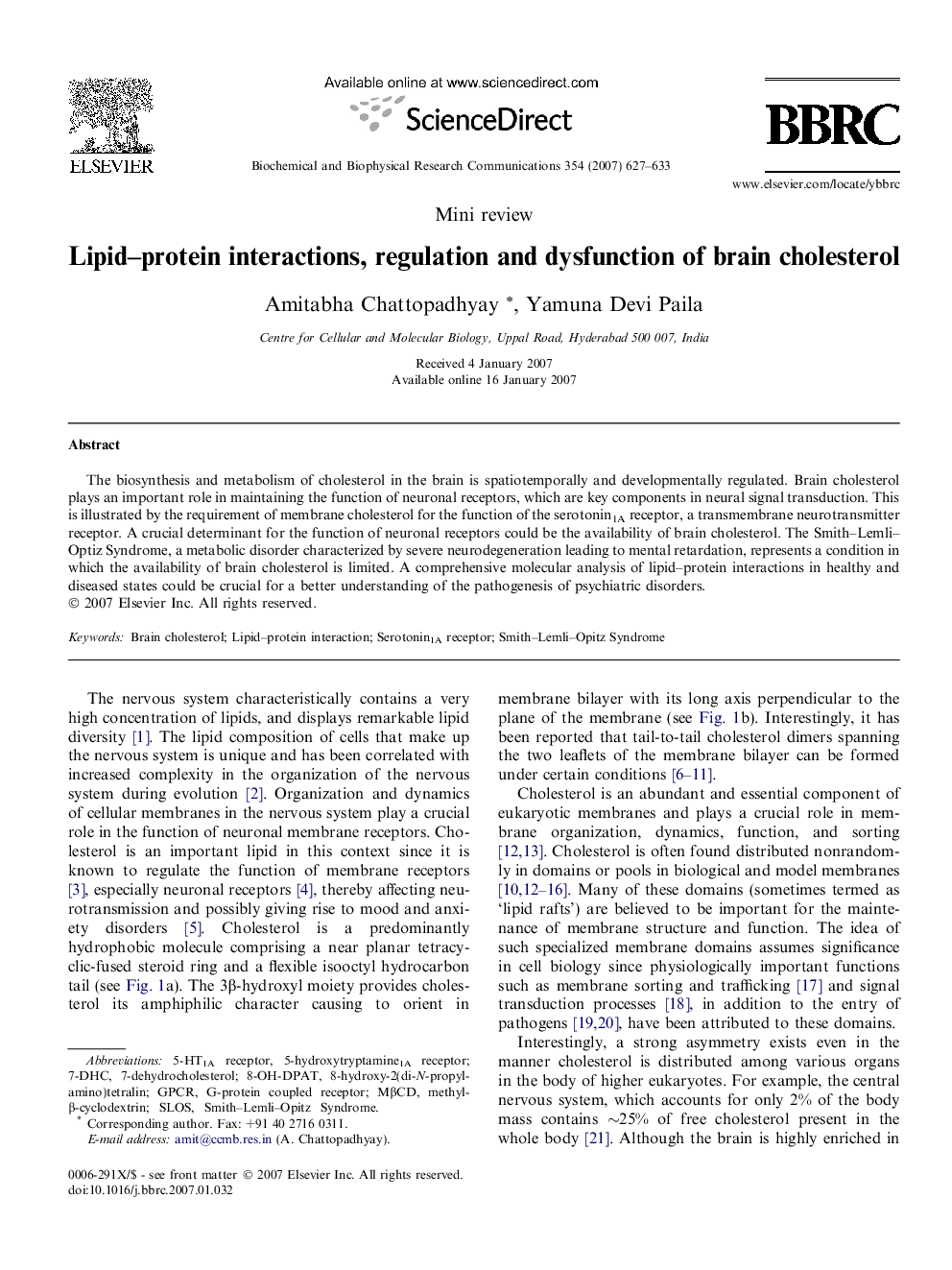| Article ID | Journal | Published Year | Pages | File Type |
|---|---|---|---|---|
| 1939280 | Biochemical and Biophysical Research Communications | 2007 | 7 Pages |
The biosynthesis and metabolism of cholesterol in the brain is spatiotemporally and developmentally regulated. Brain cholesterol plays an important role in maintaining the function of neuronal receptors, which are key components in neural signal transduction. This is illustrated by the requirement of membrane cholesterol for the function of the serotonin1A receptor, a transmembrane neurotransmitter receptor. A crucial determinant for the function of neuronal receptors could be the availability of brain cholesterol. The Smith–Lemli–Optiz Syndrome, a metabolic disorder characterized by severe neurodegeneration leading to mental retardation, represents a condition in which the availability of brain cholesterol is limited. A comprehensive molecular analysis of lipid–protein interactions in healthy and diseased states could be crucial for a better understanding of the pathogenesis of psychiatric disorders.
